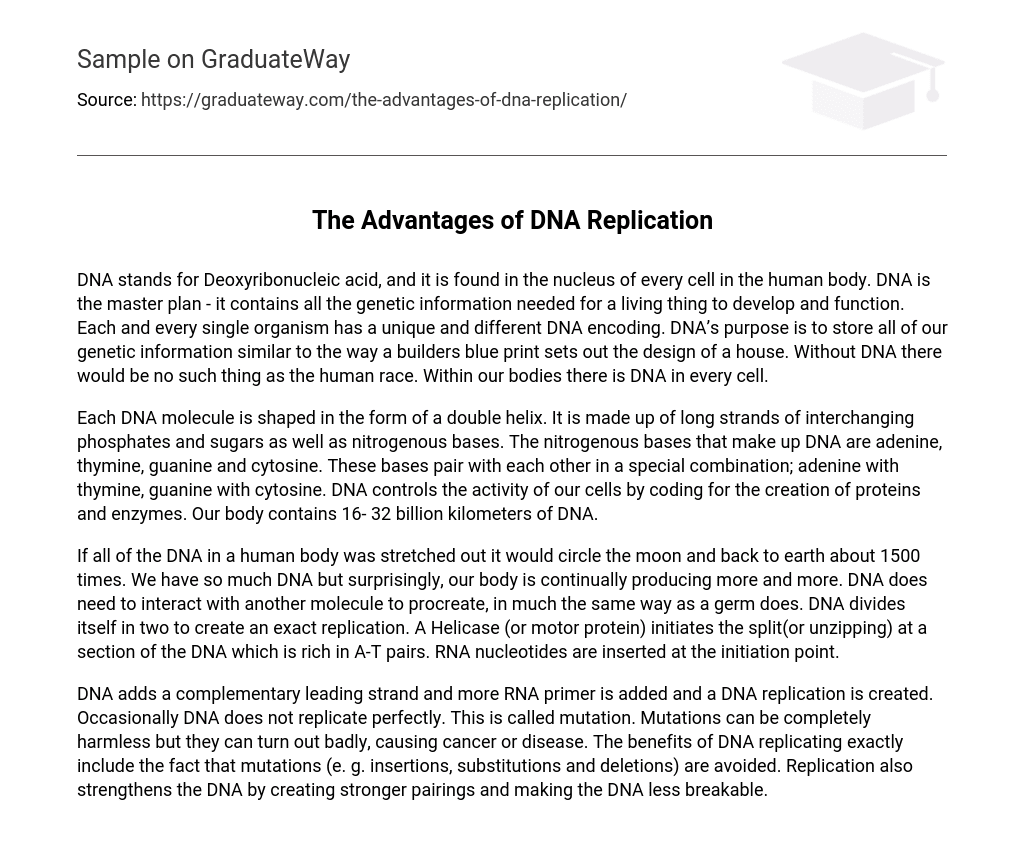DNA stands for Deoxyribonucleic acid, and it is found in the nucleus of every cell in the human body. DNA is the master plan – it contains all the genetic information needed for a living thing to develop and function. Each and every single organism has a unique and different DNA encoding. DNA’s purpose is to store all of our genetic information similar to the way a builders blue print sets out the design of a house. Without DNA there would be no such thing as the human race. Within our bodies there is DNA in every cell.
Each DNA molecule is shaped in the form of a double helix. It is made up of long strands of interchanging phosphates and sugars as well as nitrogenous bases. The nitrogenous bases that make up DNA are adenine, thymine, guanine and cytosine. These bases pair with each other in a special combination; adenine with thymine, guanine with cytosine. DNA controls the activity of our cells by coding for the creation of proteins and enzymes. Our body contains 16- 32 billion kilometers of DNA.
If all of the DNA in a human body was stretched out it would circle the moon and back to earth about 1500 times. We have so much DNA but surprisingly, our body is continually producing more and more. DNA does need to interact with another molecule to procreate, in much the same way as a germ does. DNA divides itself in two to create an exact replication. A Helicase (or motor protein) initiates the split(or unzipping) at a section of the DNA which is rich in A-T pairs. RNA nucleotides are inserted at the initiation point.
DNA adds a complementary leading strand and more RNA primer is added and a DNA replication is created. Occasionally DNA does not replicate perfectly. This is called mutation. Mutations can be completely harmless but they can turn out badly, causing cancer or disease. The benefits of DNA replicating exactly include the fact that mutations (e. g. insertions, substitutions and deletions) are avoided. Replication also strengthens the DNA by creating stronger pairings and making the DNA less breakable.





